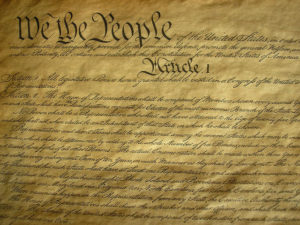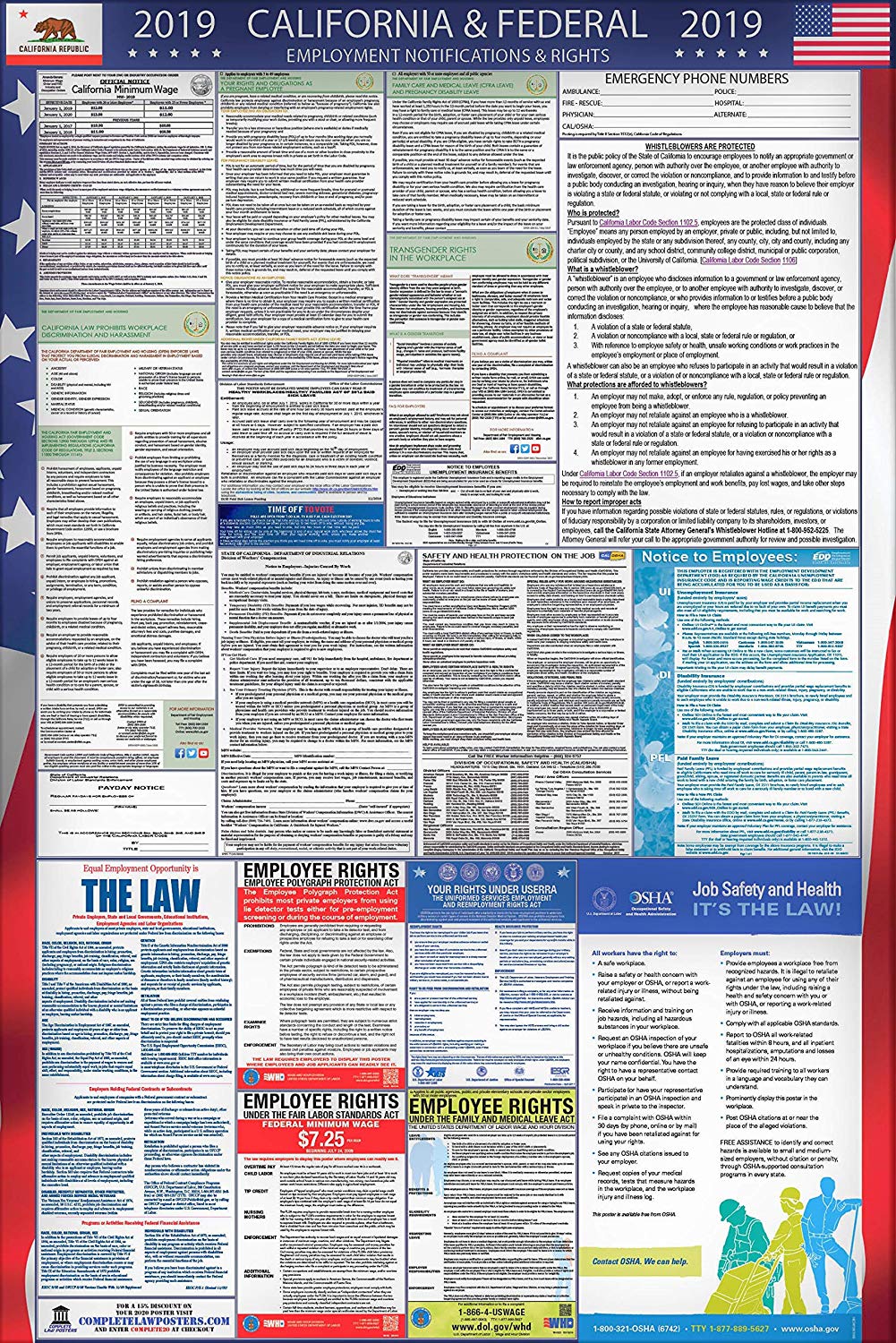“It has been an honor to… assist you in your quest to be respected and have your labor rights fulfilled. It is unusual for workers to have their battles for justice memorialized in the published case law. But your struggle has achieved that permanent legacy which hopefully will help others in the years to come.” From the Assistant Chief Counsel, California Labor Commissioner

Poster for the 1979 film
Do I have a story to tell? Oh, yes, I have a story. But its long and detailed, and probably has far too many legal discussions. It’s not at all like my children’s stories. It reminds me of a movie I saw when I first started teaching, “Norma Rae”, starring Sally Field. It was about a textile worker who worked long hours for low pay and in lousy conditions. Norma leads her fellow workers to organize for better conditions and pay. Not exactly my story, but pretty close. The short version of my story is:
I worked at a large affluent Temple in LA for many years and the Temple refused to give its early childhood educators time off for lunch and to pay for overtime. We questioned the legality, and the state of California agreed that a great wrong was being done to us. California went to court against the Temple on our behalf. Almost ten years later, only when the suit had reached the US Supreme Court with the Temple being supported by politically “conservative partisans”, did the Temple finally settle. The teachers won and we received partial restitution for our unpaid work, and the Temple agreed to correct its many unfair labor practices.
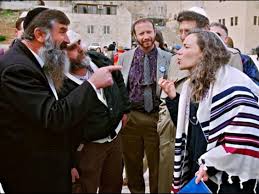
Orthodox Rabbis preventing Reform Jewish women access to pray at the Western Wall in Jerusalem
But this is also a story of a Temple that while priding itself on “tikkun olam” (repairing the world), refused to do “right” by its own employees, using the argument that preschool teachers are ministers and therefore exempt from labor laws under the First Amendment of the United States Constitution. Though the Temple didn’t receive support from its own national organization in the lawsuit, the Union of Orthodox Jewish Congregations of America wrote a brief in support of this argument. This is from an organization that, in my experience, doesn’t encourage collaboration with the Reform and Conservative Jewish communities; nor, do they allow women to become Rabbis. But, to create a work environment free of government regulations, the Union of Jewish Orthodox Congregations supported the Reform Temple’s argument that preschool teachers were Jewish ministers, even endorsing the preposterous notion that non-Jewish teachers should be recognized as Jewish ministers. The Temple’s lawyers wrote in the Petition for Rehearing to the California Supreme Court on March 22, 2019:
“Jewish doctrine—perhaps unlike mainstream Christian doctrine—allows lay nonadherents to minister to the young faithful by introducing the children to scriptures, prayers, rituals, and the whole of religious doctrine.
(and) “that the highest ecclesiastical authority, the Temple’s senior rabbi, has confirmed that “‘Judaism does not preclude a non-Jew from teaching the Jewish religion or Jewish holidays’”.
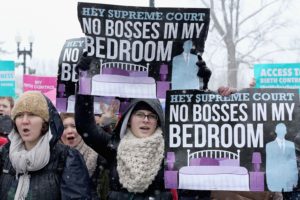
Protests against Hobby Lobby’s case
And, who were the “conservative partisans” who supported the contention that preschool teachers are ministers? They were the same supporters of Supreme Court cases which sought to deny reproductive medical coverage to employees based on the employer’s (Hobby Lobby) religious beliefs, or deny service to customers if the customer’s request ran contrary to the business owner’s religious beliefs (a baker’s refusal to sell a wedding cake for a gay wedding). These organizations are not the traditional partners of a Reform Jewish Temple that prides itself on its commitment to social justice and “repairing the world”, writing on their website: “to living our value of tikkun olam and ensuring that through our collective efforts we will fashion a world that is more humane, more sustainable, and more abundant for all God’s creatures.”

Campus of Stephen S. Wise Temple in Los Angeles
Stephen S. Wise Temple is a large Reform Jewish congregation in the very affluent Bel Air neighborhood of Los Angeles. Wikipedia reports that “at various times in its history it has been stated to be the largest, or one of the largest, Jewish congregations in the world, at one time having a membership of about 3,000 families, six rabbis, two cantors and two cantorial interns, and four schools on three campuses”. The early childhood educators are among the lowest paid employees at the Temple, though the preschool brings in a very, very big surplus. And, the highest paid employees at the Temple are the Rabbis, with annual salaries in the hundreds of thousands of dollars, with special tax exemptions such as housing allowances (parsonage).
And, what specifically did the Court decide? The Second Appellate District Court of Appeal of the State of California on March 8, 2019 reversed the summary judgement of dismissal by a lower court, writing:
“The case was brought in 2013. The (Labor) Commissioner alleged that the Temple violated various provisions of the Labor Code by failing to provide its preschool teachers with rest breaks, uninterrupted meal breaks, and overtime pay. The trial court granted summary judgment in favor of the Temple, concluding the Commissioner’s claims were barred by the “ministerial exception”—a constitutional doctrine that provides a complete defense to certain employment claims brought against religious institutions by or on behalf of persons classified as ministerial employees.
Although the Temple’s preschool curriculum has both secular and religious content, its teachers are not required to have any formal Jewish education, to be knowledgeable about Jewish belief and practice, or to adhere to the Temple’s theology. Further, the Temple does not refer to its teachers as “ministers” or the equivalent, nor do the teachers refer to themselves as such. Accordingly, (the Appellate Court) concludes the teachers are not “ministers” for purposes of the ministerial exception. We therefore reverse the judgment and remand for further proceedings.”
The Court continued to describe the case and the reasons for the reversal of the lower court’s decision, writing:
Preschool teacher talking about plants and how they grow
“The Temple’s Early Childhood Center (ECC), which employs approximately 40 teachers, is an on-site preschool for children five years of age and under. The ECC’s curriculum has a significant secular component. ECC teachers spend much of the school day engaged with children in indoor and outdoor play at various learning centers…. Teachers also work with children on social skills, including sharing and kindness, and assist with toileting, meals, and snacks.
The ECC’s curriculum also has a religious component through which children are introduced to Jewish life, religious ritual, and Judaic observance…. ECC teachers are not required to be adherents to the Temple’s religious philosophy or, indeed, to be Jewish. ECC teachers are not required to have any theological training, to be educated about Judaism, or to be proficient in Hebrew. As a result, some ECC teachers are hired without any knowledge of Jewish religion or practice. Once employed, they are not required to undertake a course of theological study.
The United States Constitution
The First Amendment provides, in part, that “Congress shall make no law respecting an establishment of religion or prohibiting the free exercise thereof.” The Supreme Court has addressed the ministerial exception just once… The Supreme Court … recognized the existence of a ministerial exception. Although the court declined “to adopt a rigid formula for deciding when an employee qualifies as a minister,” it identified the following facts as relevant to its decision…. First, the Church “held (the teacher) out as a minister,”…Second, (she) had the title of minister, which reflected significant religious training followed by a formal process of commissioning….Third, (she) held herself out as a minister by accepting “the formal call to religious service” and claiming a special housing allowance on her taxes available only to employees earning their compensation in the exercise of the ministry….Fourth, (her) job duties “reflected a role in conveying the Church’s message and carrying out its mission.”
First, nothing in the record suggests the Temple held out its ECC teachers as ministers. … ECC teachers are not given religious titles, and they are not ordained or otherwise recognized as spiritual leaders. To the contrary, it is undisputed that teachers are not required to adhere to the Temple’s religious philosophy, to be Temple members, or, indeed, even to be Jewish.
Second… the Temple does not require its teachers to have any formal Jewish education or training.
Third…there is no evidence that any of the ECC’s teachers held themselves out as ministers. Instead, they describe themselves as “teachers” and have not claimed any tax benefits available only to ministers.
Only with respect to the fourth consideration… do ECC teachers have anything in common: They both taught religion in the classroom.
Considering all the relevant circumstances of the teachers’ employment, we conclude the ministerial exception does not foreclose the Commissioner’s claims…. The record in the present case is clear that the Temple’s teachers did not play such a role in synagogue life…. Thus, while the teachers may play an important role in the life of the Temple, they are not its ministers. The trial court is directed to issue a new order denying the Temple’s motion for summary judgment and to conduct further proceedings consistent with this opinion.”
And, then the Temple appealed to the California Supreme Court and the Court refused to hear the case, letting the Appellate Court’s decision stand.
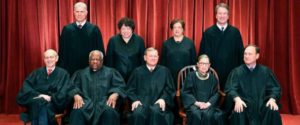
The Justices of the Supreme Court in 2019
And, then the Temple appealed to the United States Supreme Court.
And, about that time I received a call from the President of the Temple, asking me if I would settle the case. Did I forget to mention that I was the one who had started “the ball rolling” by filing the first complaint with the Labor Commission about not being properly compensated? However, after BOTH the Early Childhood Center Director and the Temple Human Resources Director told the Labor Commission that they weren’t in violation of any laws, my colleagues were surveyed by the state and over forty teachers submitted questionnaires that independently confirmed my report.
And, I probably also forgot to tell you that the ECC Director, the HR Director and the senior Rabbi all left or retired shortly after the state began the inquiry.
And, I guess I also forgot to tell you that this “defense” of preschool teachers as ministers appeared to be orchestrated by the newly hired Senior Rabbi, who is still at the Temple.
And finally, back to the President of the Temple’s call, I explained that though the teachers had initiated the process by going to the Labor Commission about their working conditions, the state of California had brought the case and only the state could settle the case.
In the end, I guess cooler heads prevailed, and the Temple negotiated a settlement with the state of California in early November 2019.
The settlement was summarized by the attorney from the state of California this way:
“As I indicated today, in my 31 years of practicing labor and employment law I have never encountered a group of workers more steadfast, determined, and activated to secure their rights under the law. It has been an honor to work with you all in obtaining a favorable result, but more importantly assisting you in your quest to be respected and have your labor rights fulfilled. It is unusual for workers to have their battles for justice memorialized in the published case law. But your struggle has achieved that permanent legacy which hopefully will help others in the years to come. You should be proud of that accomplishment and standing together to confront injustice.
The employment regulations that the Temple has finally agreed to follow, but only after fighting these wage and hour rules for years
- The total payout to teachers will be $400,000 which will be distributed to teachers employed during the period 1/1/2010 and 9/1/2013. Payment will be made pro rata based on number of pay periods worked and the final hourly rate….
- Payments will be made as soon as possible, …
- Temple agrees to provide duty free meal periods and duty free rest periods;
- Temple will pay appropriate Over Time for hours >8 in a workday or >40 in a workweek;
- Temple will dismiss its petition for certiorari with the U.S. Supreme Court leaving stand the decision of the California Court of Appeal which overruled the summary judgment in favor of the Temple. The appellate court held that the ECC teachers are not ministers as a matter of law.
- Current teachers will receive a notice of their rights under the Labor Code and Wage Order.”


